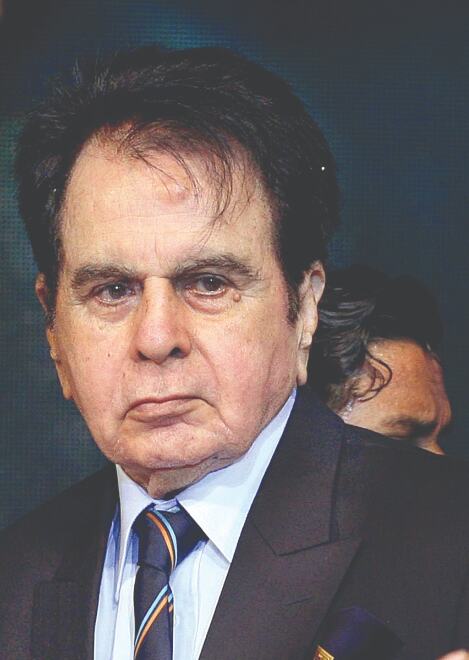Dilip Kumar: A connoisseur of Urdu language and literature

My father always said, if you want to refine your Urdu language skills, then watch Dilip Kumar movies. He was called an institution not only because of his acting skills but his fluency in Urdu as well as several other languages including Hindi, Hindko (his first language), Punjabi, Marathi, English, Bengali, Gujarati, Pashto, Persian and the Awadhi and Bhojpuri dialects. His eloquence, diction and dialogue delivery changed the entire landscape of Indian cinema.
Urdu, which was also the courtly language before independence, was used to write films' screenplay, dialogues and lyrics. Dilip Kumar, in films as well as in real life, spoke the most refined Urdu. His pronunciations were just too nuanced. He knew that the correct word for forgiveness is 'Muaafi' and not 'maafi'. He was educated enough to know that the word has Arabic origin. That was Kumar- a voracious reader, ardent literature lover and a connoisseur of arts.
Born to a fruit seller in Peshawar, Yusuf Khan had big dreams. He wanted to become a businessman, however, destiny has some other plans for him. Owing to his proficiency in Urdu, Yusuf Khan got his first job as a scriptwriter. He used to help in the scripting and story-writing department of a studio. Things went on and Yusuf changed his name to Dilip Kumar to begin his acting journey with the movie 'Jwar Bhata.'
He became a heartthrob of Bollywood within no time just because of his seminal work. He would improve his dialogues and add a lot of words that were never part of the original script.
Describing Kumar's diction and language, Lyricist and poet Gulzar had once said, "Dilip Sahab ki zabaan hamare culture ki zabaan hai, Indian cinema ki zabaan bhi toh Urdu hai."
Besides, Javed Akhtar time and again appreciated Dilip Sahab for the kind of influence he has had on our society. "The influence that Dilip Kumar has had on our society is very profound, more than
people can recognise. Our actors, even today, draw from his ways of performing. Many of them don't know that they have learned it
from him."
Akhtar said that Dilip Kumar, unknowingly, inspired generations to come by his language skills. He taught that acting does not have to be over-dramatic. "His delivery as an actor also unknowingly had an impact on writers and how they construct scenes. The incredible ease he had with Urdu made it more accessible as a language of the screen," said Akhtar.
He was part of some classic films like Andaz (1949), Jogan (1950) Deedar (1951), Daag ( 1952), Sangdil (1952) and Devdas (!955) and quickly became the 'Tragedy King of Hindi Cinema'. Later, many others like Manoj Kumar, Rajendra Kumar, Meena Kumari and Sanjeev Kumar adopted his style but nobody could match up to the standards that he had set.
Kumar's mental state was impacted by doing too many tragic roles and at the suggestion of his doctor, he shifted to comic and romantic movies. The legend once again did not disappoint his fans. His comedy was as effortless as his previous works.
Not many would know but Young Dilip was rejected as an actor in his early days and he had to change his name from Yusuf Khan to Dilip Kumar because the appeal of 'Kumar' (surname) in the initial days of Hindi cinema was as good as 'Khan' in the 20's. In fact, Ashok Kumar's (who was an established star by then) real name was Kumudlal Ganguly but to get the 'universal acceptance', he had to forgo his Bengali identity. It is also apt to mention that during those early years of cinema, working in films was disregarded by society at large. Even prostitutes denied working in cinema calling it 'immoral'. Many early actors also used pseudonyms just to hide their original identities. Madhubala, Meena Kumari and Johnnie Walker were Muslims in real life but they went ahead with their screen names to not defame their 'families' reputation'. Dilip Kumar changed the way the film industry was looked at. He proved that the profession was as good as any other job. And that there is dignity in every work.
Having professed a Ganga-Jamuni Tehzeeb throughout his life, Dilip Kumar earned credibility which transcended Bollywood, making him a public figure who is both widely admired and respected.
Rest in peace, Yusuf Sahab!



